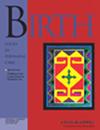The work of midwives is emotionally challenging. Midwives share moments of joy, when a baby is born, and attend complex events of loss and trauma. Exposure to childbirth complications, emergencies, and loss can affect their professional quality of life and functioning. This aspect of midwives' practice has not been sufficiently researched.
To examine the associations between exposures to traumatic events, post-traumatic symptoms, and personal resilience with professional quality of life and organizational commitment among hospital midwives.
Participants in this cross-sectional study conducted in 2020 included 131 midwives from three large hospitals in central Israel. Data were collected using a structured self-administered questionnaire that examined socio-demographic characteristics, exposure to traumatic events during childbirth, personal resilience, post-traumatic symptoms, professional quality of life, and organizational commitment.
The three most traumatic events for midwives were: neonatal death or feared death, maternal death or feared death, and stillbirth. The more frequent the exposure to traumatic events, the more numerous and intense the post-traumatic symptoms. The more numerous and intense the post-traumatic symptoms, the higher the level of professional burnout and compassion fatigue and the lower the compassion satisfaction. Higher compassion satisfaction and lower professional burnout were associated with higher organizational commitment. Personal resilience, country of birth, post-traumatic symptoms, and organizational commitment predicted compassion satisfaction.
Midwives' exposure to traumatic events is associated with the onset of post-traumatic symptoms, impaired professional quality of life, and reduced organizational commitment, and is accompanied by burnout and compassion fatigue. There is a need to address this issue in training programs and to develop organizational support and policies to improve midwives' well-being and quality of care.


